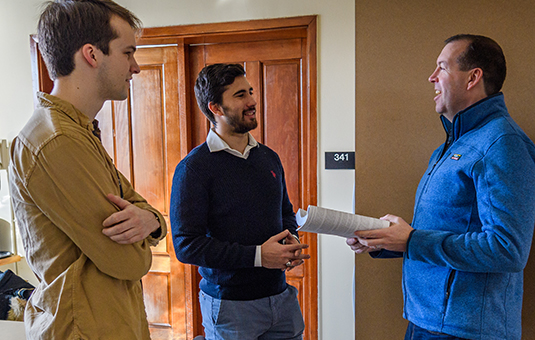Computer Science
Determining acceptance possibility for a quantum computation is hard for the polynomial hierarchy
Document Type
Article
Abstract
It is shown that determining whether a quantum computation has a non-zero probability of accepting is at least as hard as the polynomial-time hierarchy. This hardness result also applies to determining in general whether a given quantum basis state appears with non-zero amplitude in a superposition, or whether a given quantum bit has positive expectation value at the end of a quantum computation. This result is achieved by showing that the complexity class NQP (a quantum analogue of NP) of Adleman, Démarrais and Huang is equal to the counting class coC-P. © 1999 The Royal Society.
Publication Title
Proceedings of the Royal Society A: Mathematical, Physical and Engineering Sciences
Publication Date
1999
Volume
455
Issue
1991
First Page
3953
Last Page
3966
ISSN
1364-5021
DOI
10.1098/rspa.1999.0485
Keywords
complexity theory, polynomial-time hierarchy, quantum computing, quantum np
Repository Citation
Fenner, Stephen; Green, Frederic; Homer, Steven; and Pruim, Randall, "Determining acceptance possibility for a quantum computation is hard for the polynomial hierarchy" (1999). Computer Science. 67.
https://commons.clarku.edu/faculty_computer_sciences/67
APA Citation
Fenner, S., Green, F., Homer, S., & Pruim, R. (1999). Determining acceptance possibility for a quantum computation is hard for the polynomial hierarchy. Proceedings of the Royal Society of London. Series A: Mathematical, Physical and Engineering Sciences, 455(1991), 3953-3966.



